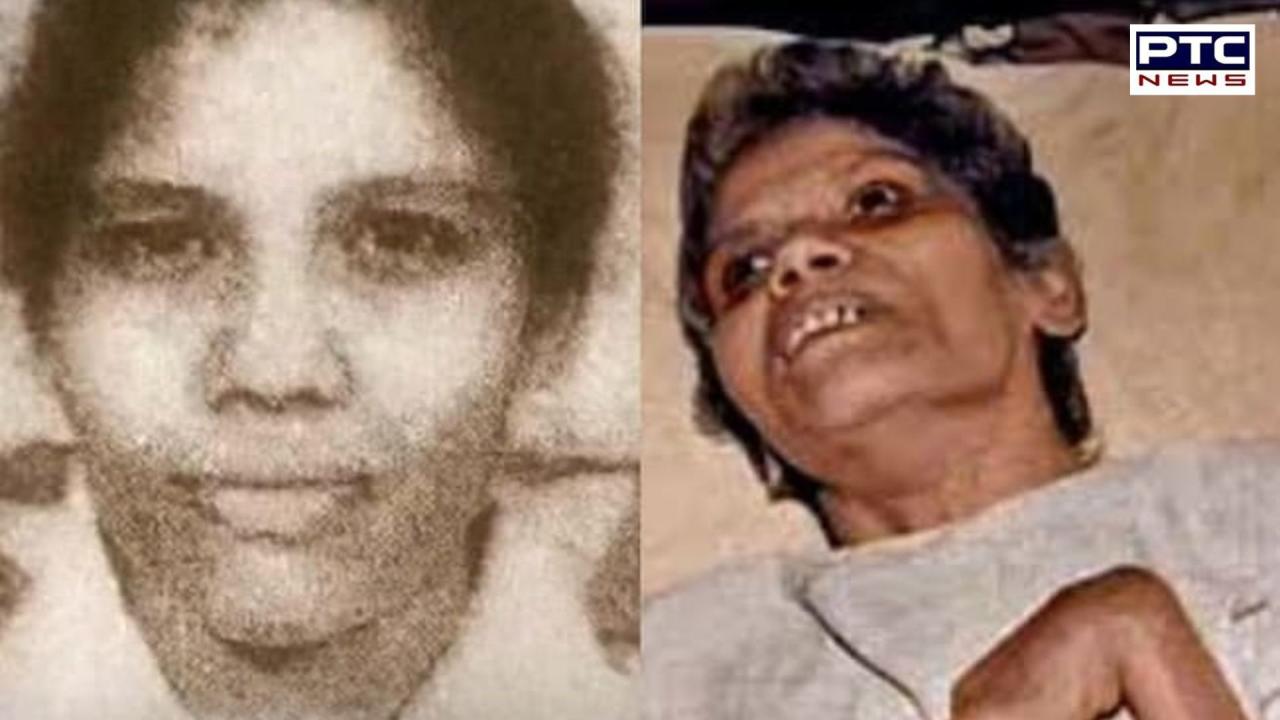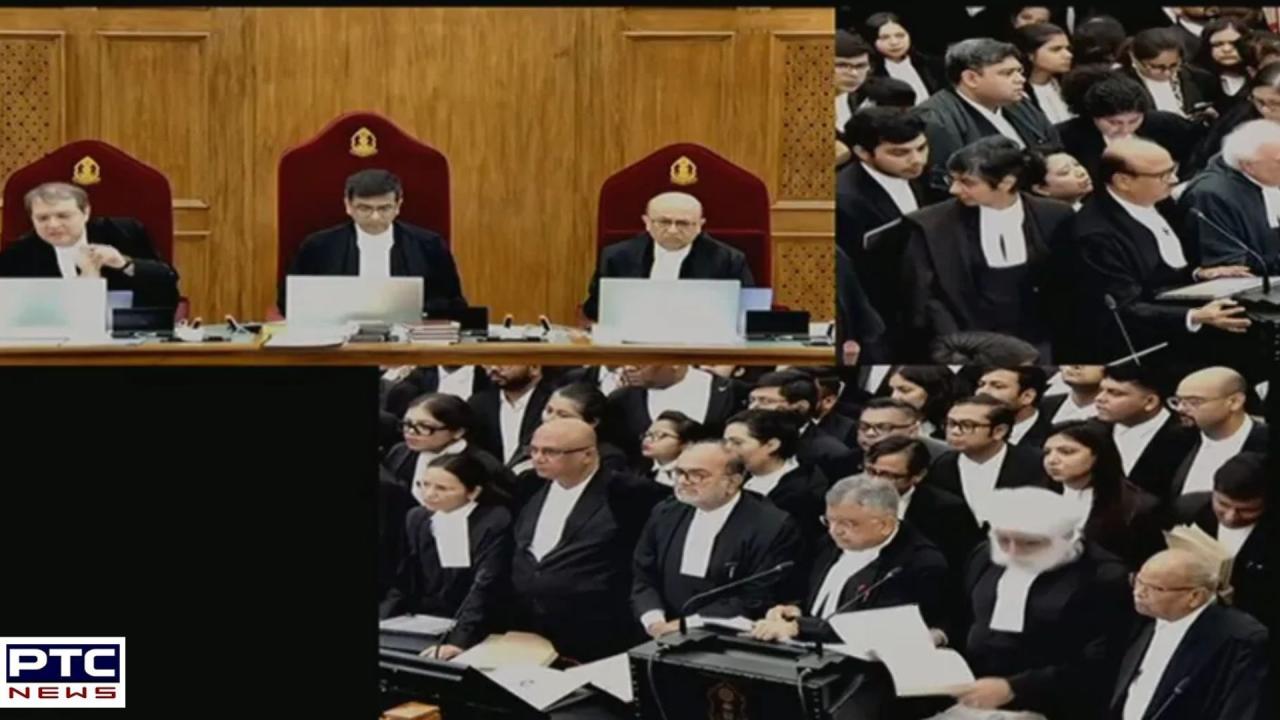

Aruna Shaunbag case: SC cites Aruna Shanbaug in Kolkata doctor assault case, know her heartbreaking story
PTC News Desk: On August 20, the Supreme Court, under the leadership of Chief Justice of India (CJI) DY Chandrachud, took up the pressing issue of safety and the increasing incidents of gender violence within India's healthcare sector. The court's attention was particularly focused on the tragic case involving the brutal rape and murder of a postgraduate doctor at Kolkata's RG Kar Medical College and Hospital.
During the hearing, CJI Chandrachud drew a poignant comparison to the infamous Aruna Shanbaug case, emphasising the grave risks that female healthcare workers continue to face. CJI Chandrachud remarked, “Ingrained patriarchal biases often result in women doctors being more vulnerable to attacks by patients' relatives, and they are also more prone to sexual violence. The Aruna Shanbaug case serves as a significant example. Gender-based violence underscores the lack of safety for women within our healthcare system."

The horrifying crime at Kolkata's RG Kar Hospital has reignited critical discussions about gender violence in the medical field, shedding light on the systemic issues that have long plagued the sector. The reference to Shanbaug's case serves as a stark reminder of the unsafe and challenging conditions that female doctors and nurses frequently endure in their workplaces.
Aruna Shanbaug's story is both tragic and a stark reflection of deep-seated societal issues in India. On November 27, 1973, at just 25-years-old, Shanbaug was brutally assaulted by a cleaner at King Edward Memorial (KEM) Hospital in Mumbai, where she worked as a nurse.
After completing her duties that day, she went to the hospital basement, which housed a 'dog lab' for animal experiments. There, a young orderly named Sohanlal Bharta Walmiki, who had been lying in wait, attacked her. He strangled her with a dog chain, sexually assaulted her, and then fled the scene.
Walmiki was later sentenced to seven years in prison for robbery and attempted murder. However, he was not charged with rape, as Indian law at the time did not recognise sodomy as rape, and the hospital concealed key details of the assault during the investigation.
Although Shanbaug survived the attack, the brutal assault left her in a vegetative state due to severe brain damage and paralysis. For the next 42 years, she remained in this condition, receiving care from the hospital staff, who tended to her with unwavering dedication and compassion.
Shanbaug's suffering came to an end on May 18, 2015, when she passed away at the age of 66 after contracting pneumonia. Her death reignited discussions about her case, highlighting broader issues of women's safety and sparking debates on the legal framework for euthanasia in India.
Also Read: 'Nation can't wait for another tragedy to enact real changes': Supreme Court
Ms. Virani's petition argued that Aruna, who was in a state where she could no longer experience life meaningfully, should be allowed to die with dignity. This case significantly brought the issue of euthanasia into the public discourse in India.
On March 7, 2011, the Supreme Court delivered a landmark judgment rejecting the petition for active euthanasia, noting that Aruna was not brain dead and still responded to certain stimuli, as observed by the hospital staff. However, the Court did open the door for "passive euthanasia"—the practice of withholding or withdrawing artificial life support from a patient.
The judgment stipulated that in cases where patients are in a vegetative state, life support can legally be withdrawn if the request is made by close family members or caretakers and is sanctioned by the courts.
The Supreme Court, however, ruled that life support could be withdrawn in exceptional cases, provided the request came from the patient’s family and was overseen by both doctors and the judiciary.
Years later, in March 2018, the Supreme Court further expanded the legal framework by recognizing the right of terminally ill patients to refuse medical treatment. This landmark ruling allowed for the creation of "living wills," where patients could specify their treatment preferences in advance, should they become incapacitated, thus formalising the practice of passive euthanasia.
While the Court’s decision did not permit the administration of lethal substances, it allowed the withdrawal of life support systems under strict guidelines. This was a pioneering judgment, emphasizing that the decision to discontinue life support should rest with the medical team rather than individuals.
Shanbaug’s story also echoes current concerns in the healthcare sector, particularly regarding the safety of healthcare workers. Recent incidents, such as the brutal assault and rape of a postgraduate trainee doctor at Kolkata’s RG Kar Medical College, have reignited discussions about the urgent need for enhanced security measures and legal protections for healthcare professionals. The public outcry and protests following these events underscore the growing demand for better safeguards and justice within the healthcare environment.
- With inputs from agencies
